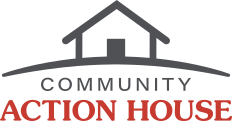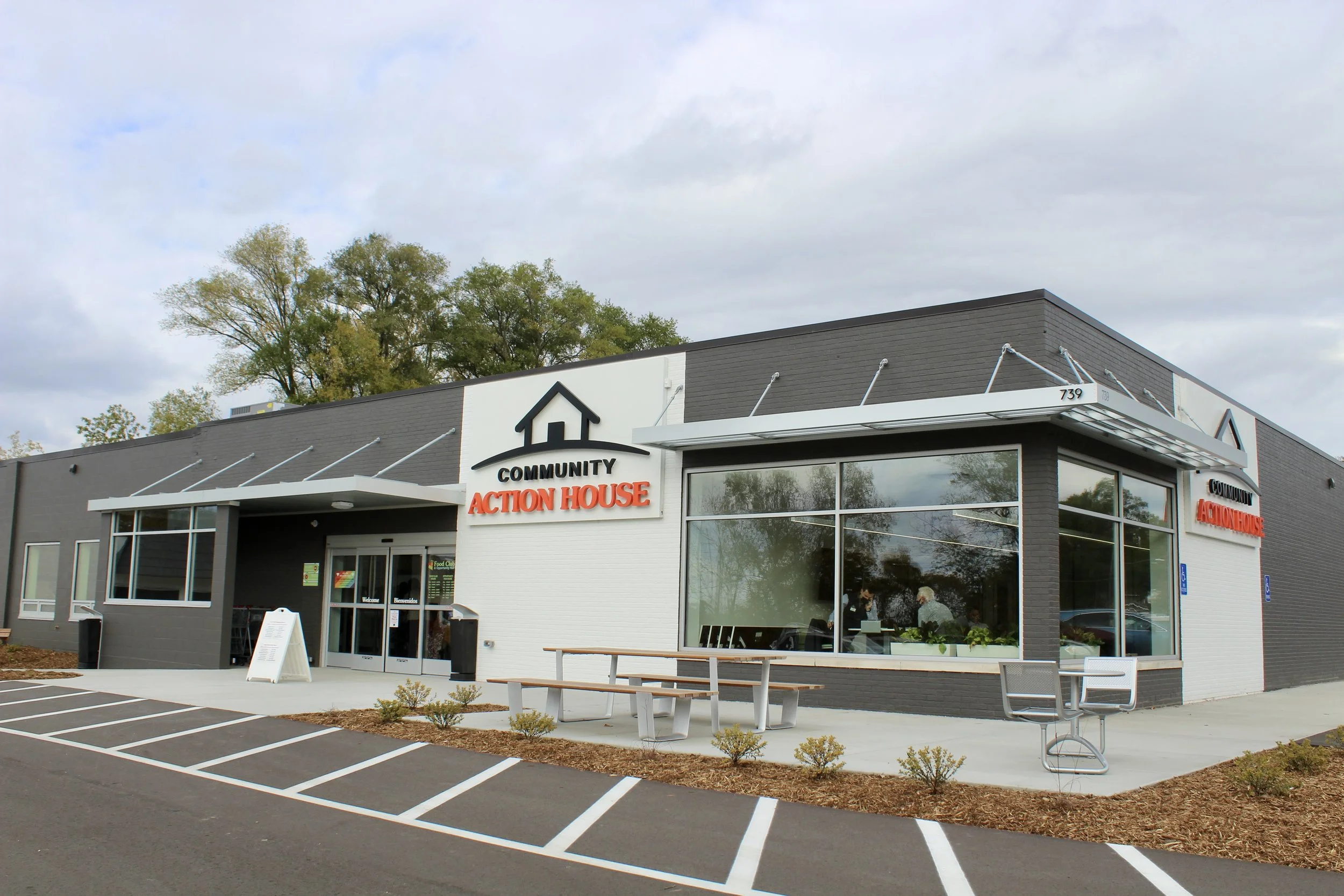History
Inception: 1969
Community Action House was started in 1969 to meet the needs of our community’s poor. Lupita Reyes, an early advocate for the poor and migrant workers in our community, offered presentations in local churches about the need to have a community safety net. David Myers, a Hope College Professor invited Reyes to make a presentation to representatives from local churches and the American Association of University Women. The meeting resulted in the formation of Community Action House. Three years later CAH started its first food pantry and free clothing distribution.
Migrant Workers and Emergency Services: 1969-1986
From the beginning, families from all ethnic backgrounds came requesting help. Through their stories, CAH learned that providing food and clothing was just part of the solution. Finding adequate housing was a major issue and CAH began helping families secure safe and affordable housing. After learning that some of the rental properties in the community were in poor condition and did not meet local housing code requirements, CAH took the lead role for the advocacy and the creation of the rental inspection program in the City of Holland. Today all rental property in the city is inspected ensuring a safe physical living environment for families and sound rental housing in our community.
Local Residents and Case Management: 1987-1991
In the mid-1980’s, Community Action House expanded its programming to become one of the first local agencies to offer case management services. In short, the agency wasn’t satisfied with just providing for immediate needs—CAH wanted to help its neighbors understand the root causes of poverty and equip them with the needed skills to make long-term change on the road to prosperity. Programming expanded to include case management, emergency services, life skills training, and referral to stable housing.
Collaboration and The Community Kitchen: 1992-1994
Being a learning-driven organization, CAH collaborated with other agencies to explore effective ways to serve families in need. A discussion with Western Theological Seminary (WTS) in 1992 led to the establishment of a community kitchen. Today the “Community Kitchen” partnership is nationally recognized as an example of how faith-based and community-based organizations can successfully work together. The Community Kitchen, located at WTS and staffed by CAH, provides free hot meals seven days a week, and serves to connect individuals of diverse backgrounds and situations, facilitating a resilient community meal where all are welcome.
Collaboration and the Community Housing Partnership: 1994-1996
Partnering with Good Samaritan Ministries in 1995, the two agencies started the Community Housing Partnership. The program offers families transitional housing while they participate in an intensive case management program. Good Samaritan Ministries trains church teams to support and mentor CHP families while CAH case managers coordinate services and assist CHP families to set self-sufficiency goals. In 2005 the CHP program received national recognition for being an effective community collaboration from the Faith and Service Technical Educational Network (FASTEN).
The MRC, the Boutique, and Educational Services: 1997-2006
In 1997 Community Action House advanced the innovative idea of housing multiple non-profits under one roof by renovating a 30,000sf former egg hatchery on Holland’s north side into the Macatawa Resource Center (MRC). Today CAH and thirteen agencies provide an array of services, including advocacy for children and adults with developmental disabilities, health information services, 12 step programs, senior commodities distribution, community gardening, and neighborhood watch programs. The MRC was the first of our area’s three multi-agency centers.
In the same year the MRC opened, CAH launched its first resale shop, the Boutique. The 900 sq. ft. store hit sales of $90,000 six years later. In addition, CAH extended its mission to include assisting its clients achieve prosperity. CAH developed its educational programming to teach skill-building classes focused on financial literacy, home maintenance, and homeownership. Over 100 families a year attend these classes.
Expanding Partnerships and Collaborations: 2007-2008
Recognizing that securing a stable job is essential to the economic stability of its clients, CAH contracted with Michigan Works to provide on-site access to Michigan Works’ statewide job search network. In addition, CAH also took on oversight responsibilities for the Ottawa Area Housing Coalition, whose aim is to provide adequate housing for every person in the U.S within the next 10 years.
CAH also explored more efficient ways to collaborate with its community partners by sharing information through web-based networking. This type of collaboration allows CAH to effectively service an ever-changing community and to streamline the process of securing resources for its clients. To further benefit our clients, CAH launched ongoing evaluation and improvement of its partnerships and services.
The Great Recession, Foreclosure Prevention and the Beginning of Economic Recovery: 2008-2011
Due to seeing an increased number of requests for assistance with mortgage payments, CAH hired and trained a Foreclosure Prevention Team. In 2010, Community Action House was awarded the Human Relations Social Justice Award for our Foreclosure Prevention Program (FP). In 2014, the FP Program was recognized by U.S. Department of Housing and Urban Development's Office of Housing Counseling (OHC) for its utilization of best practices in providing housing counseling services. In the September 2014 issue of the OHC's nationally distributed newsletter, THE BRIDGE, two of the agency's foreclosure prevention specialists were recognized as Champions of Service who have provided exemplary service in the Housing Counseling arena.
Resale Stores and Financial Independence: 2011-2014
In 2011, prompted by the loss of over $250,000 in government funding during the Great Recession, CAH decided to expand its resale operations by purchasing the old Town & Country Grocery Store building at 694 Michigan Avenue. A capital campaign was conducted and two years later CAH paid the mortgage off. CAH’s resale objective is to generate new revenue to help stabilize private and government funding sources. The General Store has also become an integral part of the community, providing a place for volunteers to share their time and talents and for young people to learn practical skills while doing community service.
In 2012, the CAH Housing and Education team applied for and was granted certification and approval through the U.S. Department of Housing and Urban Development (HUD). This designation recognizes CAH’s significant investment in training, resources and staff to provide important housing counseling services and financial education classes to the community.


